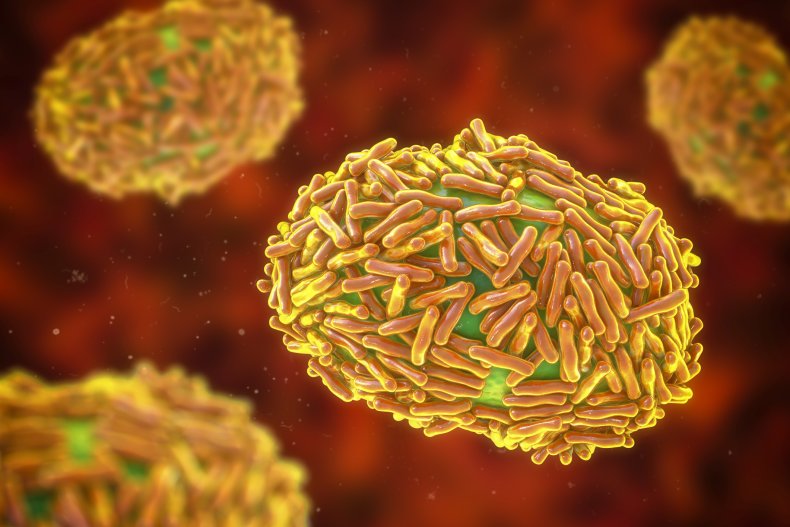The monkeypox virus can remain stable for days and even weeks on refrigerated food and in water, according to a report from the U.S. Department of Homeland Security's (DHS) Science and Technology Directorate.
Monkeypox is continuing to spread around the world, with three new deaths this past Friday and Saturday—the first such deaths to have been confirmed outside of Africa. Meanwhile, cases keep rising, with over 22,485 confirmed infections reported globally as of July 29, according to the U.S. Centers for Disease Control and Prevention (CDC). Almost all have occurred in countries that have not historically reported monkeypox cases.
There is a lot that scientists still do not know about the outbreak, including why it's happening now when historically the disease has remained endemic to West and Central Africa.

At the same time, there is also a lot that experts do know about the disease, and a wealth of details were presented in the DHS Science and Technology report, which was published July 12.
The report covers everything from transmissibility to infectious doses. One section contains information on what we know about the environmental stability of the monkeypox virus—in other words, how long it can survive outside of the body.
The report describes monkeypox as "very stable" in the environment and says it can live "for days to weeks in water, soil, and on refrigerated food." It adds that the virus can live for months to years inside of scabs.
The report does not say how long the virus can survive on surfaces, but the CDC said investigators found the live virus 15 days after a patient's home was left unoccupied, according to one study.
The CDC also said poxviruses like monkeypox can survive in linens, clothing and surfaces particularly well in dark, cool, dry environments. Porous materials like bedding and clothing may harbor live viruses for longer than nonporous materials like plastic, glass, or metal, the CDC said.
Other closely related orthopoxviruses can survive in a household-like environment for months.
Regarding decontamination, the DHS report said that, as of July 12, no data demonstrates the effectiveness of most common disinfectants against the monkeypox virus but bleach is recommended against emerging viruses. The report also said that testing with the vaccinia virus—a close relative of monkeypox—suggests that the disinfectants Virkon, Dettol and Sanytex are effective.
Surface survival is important because experts know that while sexual transmission has played a significant role in the spread of the disease this year, monkeypox can be spread via contaminated objects such as clothing.
The virus can also spread via direct contact with the rash it causes, contact with body fluids, contact with respiratory secretions and intimate contact like sex, kissing, hugging and prolonged face-to-face contact, the CDC said. Also, pregnant women can spread the virus to the fetus. In addition, people can catch the virus from infected animals, including their meat.
According to the DHS report, the basic reproduction number, or R-value, for monkeypox is estimated to range from 0.57 to 0.96, though a maximum value of 1.25 has been observed. A virus' R-number refers to how many people will be infected by each infected person.
However, the R-value for the current outbreak is not known. It's thought that the transmission rate of monkeypox has increased over time.
Health - Latest - Google News
August 01, 2022 at 08:14PM
https://ift.tt/eALoCEh
Monkeypox Can Survive for Weeks in Water and on Refrigerated Food - Newsweek
Health - Latest - Google News
https://ift.tt/fxlE4F1
Bagikan Berita Ini














0 Response to "Monkeypox Can Survive for Weeks in Water and on Refrigerated Food - Newsweek"
Post a Comment